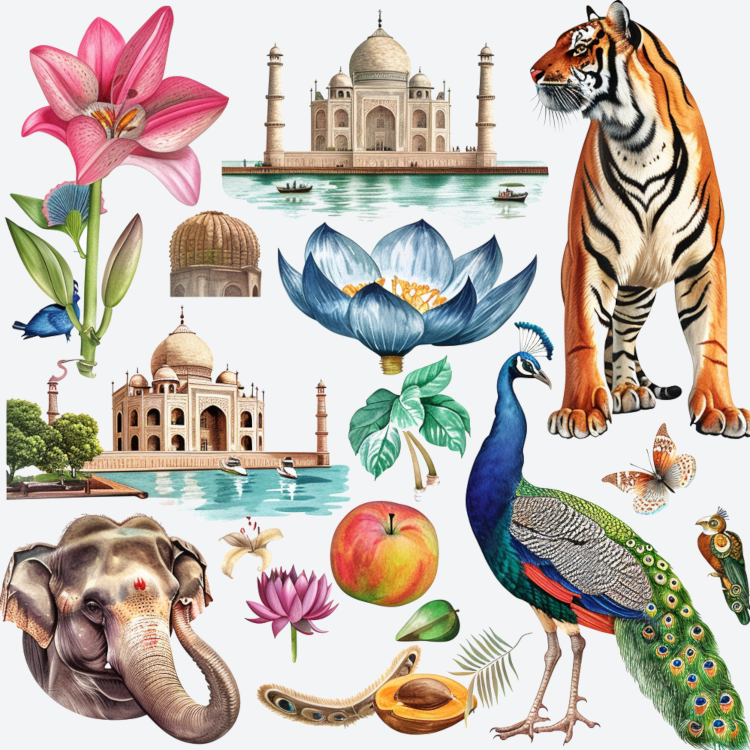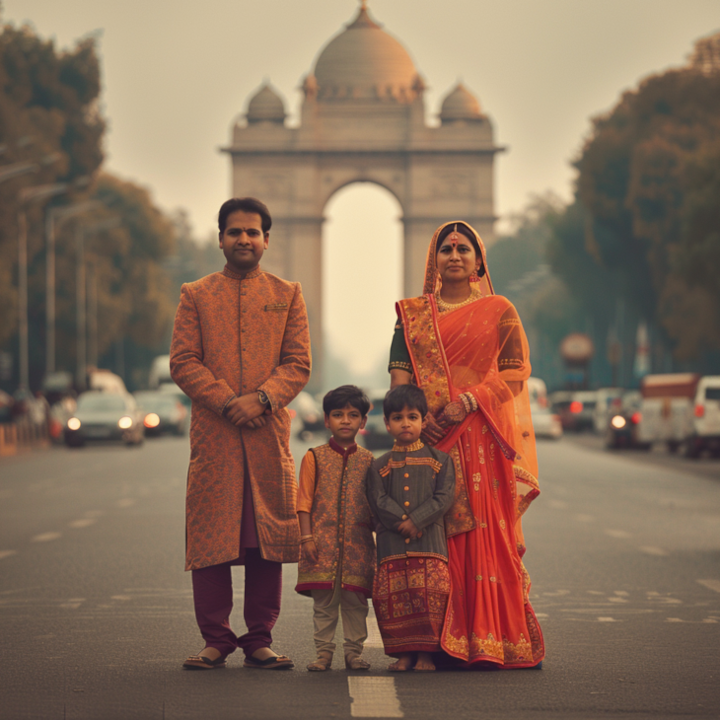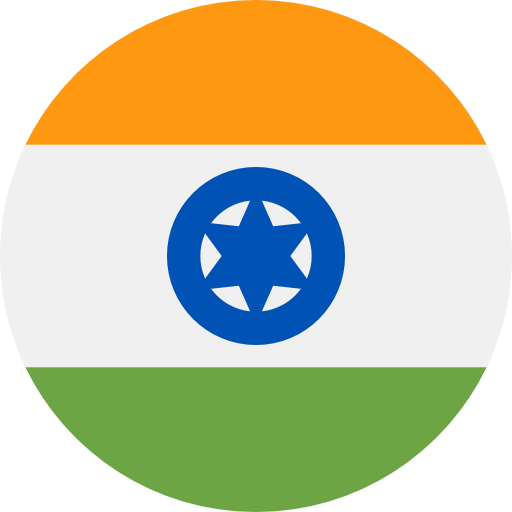About IN

Location
India is a country located in South Asia, bordered by Pakistan to the northwest, China and Nepal to the north, Bhutan to the northeast, and Bangladesh and Myanmar to the east. To the south, it is bounded by the Indian Ocean.
Capital
The capital city of India is New Delhi.
Population
India is the second-most populous country in the world, with a population of over 1.4 billion people.
Area
India covers a total land area of about 3.28 million square kilometers (1.27 million square miles), making it the seventh-largest country in the world by land area.
Official Languages
India recognizes 22 languages under the Eighth Schedule of the Constitution of India. However, Hindi and English are the official languages at the national level.
Government
India is a federal parliamentary democratic republic. The President of India is the head of state, while the Prime Minister is the head of government. The government structure includes a bicameral parliament consisting of the Rajya Sabha (Council of States) and the Lok Sabha (House of the People).
Religion
India is known for its religious diversity. Hinduism is the largest religion, followed by Islam, Christianity, Sikhism, Buddhism, and Jainism, among others.
Economy
India has a mixed economy, with agriculture, manufacturing, and services sectors contributing significantly to its GDP. It is one of the world's fastest-growing major economies and is classified as a newly industrialized country. India is also a member of the G20 group of major economies.
Culture
India has a rich cultural heritage that includes literature, music, dance, art, architecture, cuisine, and festivals. It is known for its diverse traditions, languages, and customs, which vary from region to region.
History
India has a long and complex history dating back thousands of years, with evidence of ancient civilizations such as the Indus Valley Civilization. It has been ruled by various empires and dynasties, including the Maurya, Gupta, Mughal, and British Empires.
Independence
India gained independence from British rule on August 15, 1947, following a non-violent struggle led by leaders such as Mahatma Gandhi, Jawaharlal Nehru, and others.
Achievements
India has made significant contributions to various fields, including science, technology, medicine, literature, and arts. It is known for its achievements in space exploration, information technology, and nuclear technology, among others.

National Items of India
Bengal Tiger
The Bengal Tiger (Panthera tigris tigris) is the national animal of India. It symbolizes strength, courage, and the country's rich wildlife heritage.
Indian Peafowl (Peacock)
The Indian Peafowl (Pavo cristatus), also known as the Peacock, is the national bird of India. Its vibrant and colorful plumage represents beauty, grace, and the rich cultural heritage of the country.
Lotus
The Lotus (Nelumbo nucifera) is the national flower of India. It symbolizes purity, beauty, wealth, and spiritual enlightenment.
Banyan Tree
The Banyan Tree (Ficus benghalensis) is the national tree of India. It represents eternal life and is often associated with longevity and immortality in Indian culture.
Mango
The Mango (Mangifera indica) is the national fruit of India. Known as the "King of Fruits," it symbolizes the country's rich agricultural heritage and tropical abundance.
Ganga (Ganges River)
The Ganga, or Ganges River, is considered the national river of India. It symbolizes purity, life, and is of immense spiritual significance to the Indian people.
Indian Elephant
The Indian Elephant (Elephas maximus indicus) is a significant animal in Indian culture and is considered a national heritage animal. It symbolizes strength, wisdom, and cultural heritage.
Sari
The Sari is a traditional garment worn by women in India. It represents the rich cultural heritage and traditional attire of the Indian people.
Taj Mahal
The Taj Mahal is an iconic symbol of India and one of the Seven Wonders of the World. It represents a rich architectural heritage and is a symbol of love and beauty.
Bharatanatyam
Bharatanatyam is a classical Indian dance form that originated in Tamil Nadu. It symbolizes the rich cultural heritage, art, and traditional dance of India.
Indian Rupee (INR)
The Indian Rupee (INR) is the currency of India. It symbolizes the country's economic strength and financial system.
Tiger Lily
The Tiger Lily (Lilium lancifolium) is often considered a symbolic flower of India, representing passion, prosperity, and confidence.
Charkha (Spinning Wheel)
The Charkha, or spinning wheel, is a symbol of India's independence movement and self-reliance, famously promoted by Mahatma Gandhi.

This anthem was composed by Rabindranath Tagore in Bengali and was adopted as India's national anthem in 1950. It celebrates the diversity and unity of India while invoking blessings for the country's prosperity and well-being.
The national anthem of India is called "Jana Gana Mana" in Bengali, which translates to "Thou Art the Ruler of the Minds of All People" in English. Here are the lyrics in Bengali along with an English translation:
জন গণ মন অধিনায়ক, জয় হে
ভারত ভাগ্য বিধাতা!
পঞ্জাব সিন্ধু গুজরাট মরাঠা
দ্রাবিড় উৎকল বঙ্গ।
বিন্ধ্য হিমাচল যমুনা গঙ্গা
উচ্ছল জলধি তরঙ্গ।
তব শুভ নামে জাগে
তব শুভ আশিষ মাগে
গাহে তব জয়গাথা॥
জন গণ মঙ্গলদায়ক, জয় হে
ভারত ভাগ্য বিধাতা!
জয় হে, জয় হে, জয় হে
জয় জয় জয় জয় হে॥
Thou Art the Ruler of the Minds of All People, Dispenser of India's Destiny!
Thy name rouses the hearts of Punjab, Sindhu, Gujarat, Maratha,
Of the Dravida, Odisha and Bengal;
It echoes in the hills of Vindhya and the Himalayas,
Mingles in the music of Yamuna and Ganga,
And is chanted by the waves of the Indian Sea.
They pray for thy blessings and sing thy praise.
The salvation of all people is in thy hands,
Dispenser of India's destiny!
Victory, victory, victory to thee.


